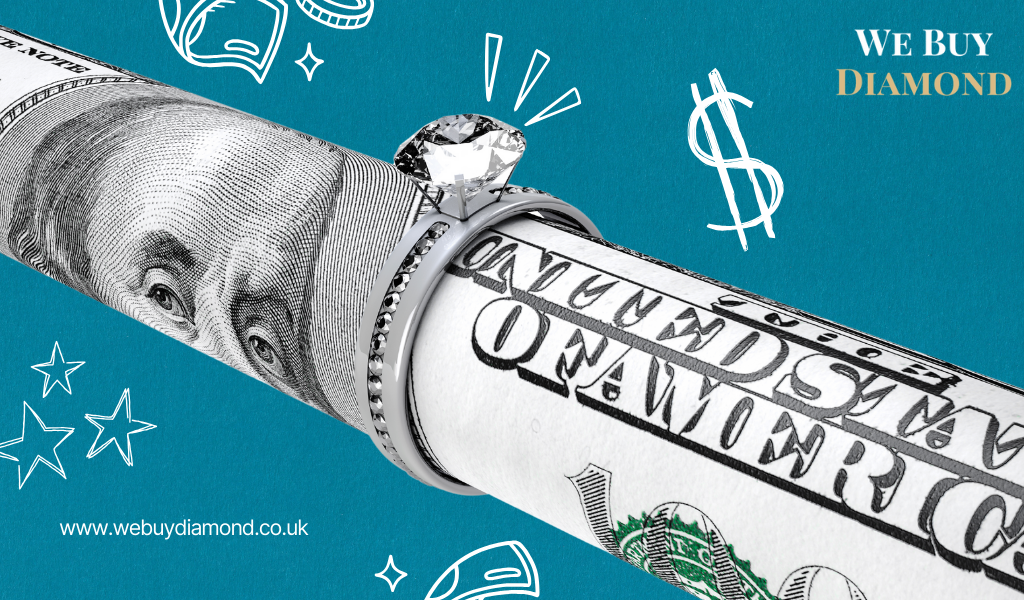Where Can I Sell My Gemstones for the Best Price?
Gemstones, with their mesmerizing allure and intrinsic beauty, have long fascinated humanity. Whether inherited, collected, or acquired, gemstones often hold both sentimental and monetary value. However, when it comes to selling these precious stones, understanding the myriad factors influencing their worth becomes imperative.
From the rarity of the gem to its quality and market demand, several elements contribute to determining its value in the eyes of potential buyers.
Rarity and Scarcity:
The rarity of a gemstone is perhaps one of the most significant factors impacting its value. Stones that are scarce or found in limited quantities are inherently more valuable. For instance, natural pink diamonds or Paraiba tourmalines are highly sought after due to their rarity, commanding premium prices in the market.
Color and Clarity:
The color and clarity of a gemstone play a pivotal role in its appraisal. Vibrant, vivid hues are often prized, especially in gems like emeralds, rubies, and sapphires. Stones with fewer inclusions or imperfections are considered more valuable as they exhibit greater brilliance and transparency.
Cut and Shape:
The precision of the cut and the overall shape of the gemstone significantly impact its visual appeal and, consequently, its value. A well-cut gemstone reflects light in a captivating manner, enhancing its sparkle and allure. Certain cuts, such as the round brilliant or the emerald cut, are perennially popular and can fetch higher prices in the market.
Also Read: - Where To Sell Gemstones for Maximum Value?
Carat Weight:
The carat weight of a gemstone directly influences its value, with larger stones typically commanding higher prices. However, it's essential to note that other factors such as color, clarity, and rarity also come into play. A smaller but high-quality gemstone may be more valuable than a larger stone with inferior characteristics.
Origin and Provenance:
The geographical origin of a gemstone can significantly influence its worth. Gems from renowned sources or mines with a storied history often carry a premium. For instance, Kashmir sapphires or Colombian emeralds are esteemed for their exceptional quality and provenance, making them highly coveted by collectors and connoisseurs alike.
Treatment and Enhancement:
Many gemstones undergo treatments or enhancements to improve their appearance or durability. While some treatments are widely accepted and can enhance a stone's value, others may diminish its worth. Full disclosure of any treatments or enhancements is crucial when selling gemstones, as transparency builds trust with potential buyers.
Market Demand and Trends:
Like any other commodity, gemstone prices are subject to market demand and prevailing trends. Certain gemstones may experience fluctuations in value due to shifts in consumer preferences, economic factors, or changes in fashion trends. Staying informed about market dynamics and seeking professional advice can help sellers navigate these fluctuations effectively.
Authenticity and Certification:
Ensuring the authenticity of a gemstone is paramount when selling, particularly in a market rife with counterfeits and imitations. Gemological certifications from reputable laboratories provide buyers with assurance regarding the quality and authenticity of the stone, thereby bolstering its value.
Selling Venue and Method:
The venue and method chosen for Selling Gemstones can impact the final selling price. While traditional auction houses and high-end jewellery stores may offer prestige and reach, online platforms and specialized gemstone dealers can provide convenience and access to a broader audience. Researching different selling avenues and understanding their respective pros and cons can help sellers maximize their returns.
Negotiation Skills and Timing:
Finally, effective negotiation skills and timing can influence the outcome of a gemstone sell. Being well-informed about the market value of the gemstone, setting realistic expectations, and having patience can all contribute to achieving a favorable outcome. Additionally, timing the sale to coincide with periods of high demand or favorable market conditions can yield better results.
In conclusion, numerous factors affect the value of gemstones when selling, ranging from their intrinsic characteristics such as rarity, color, and clarity to external factors such as market demand and provenance. By understanding these factors and leveraging them to their advantage, sellers can optimize their chances of realizing the full potential value of their gemstones. Whether it's a cherished family heirloom or a recent acquisition, selling gemstones can be a rewarding endeavor when approached with knowledge, diligence, and careful consideration.




